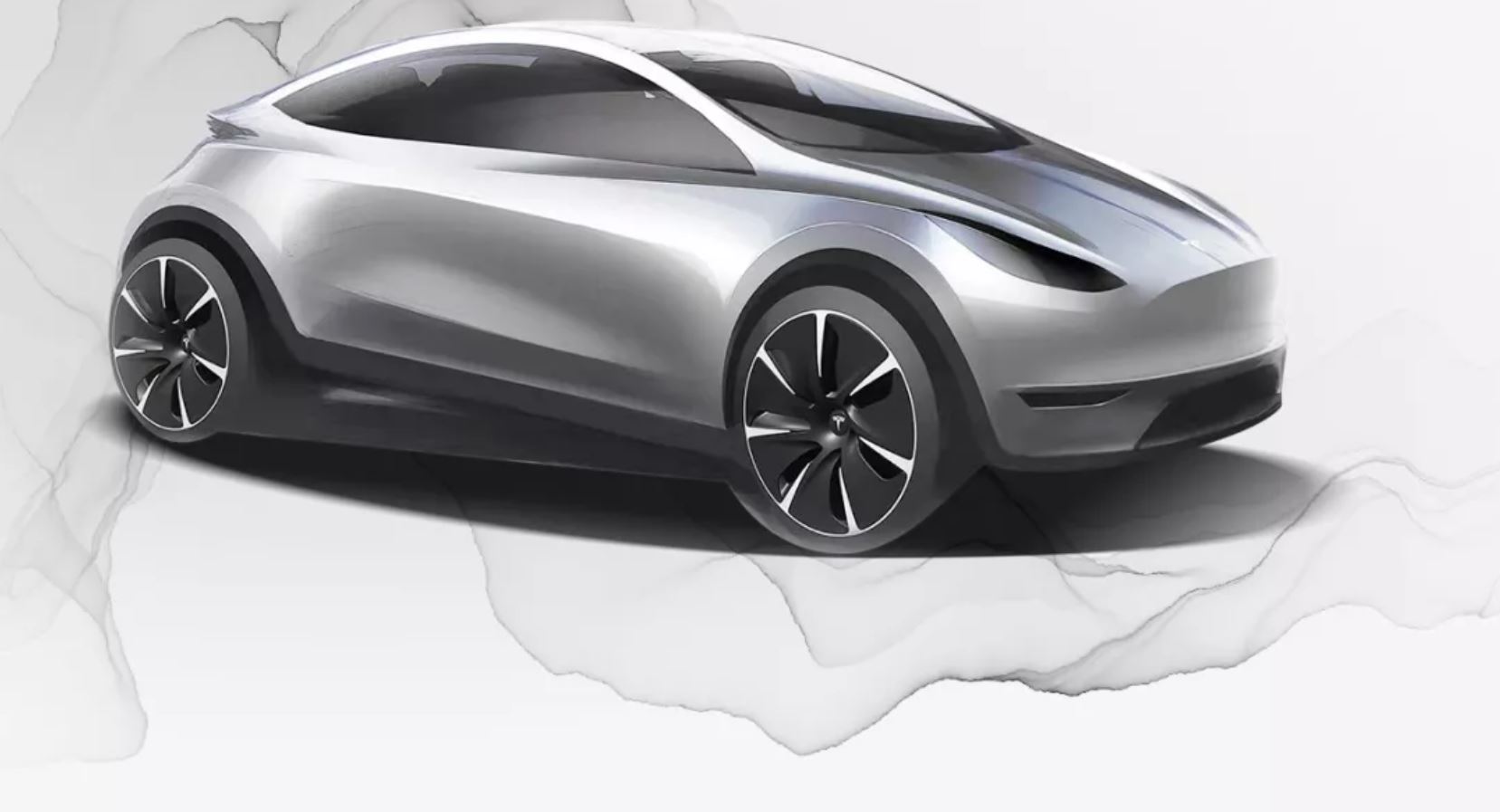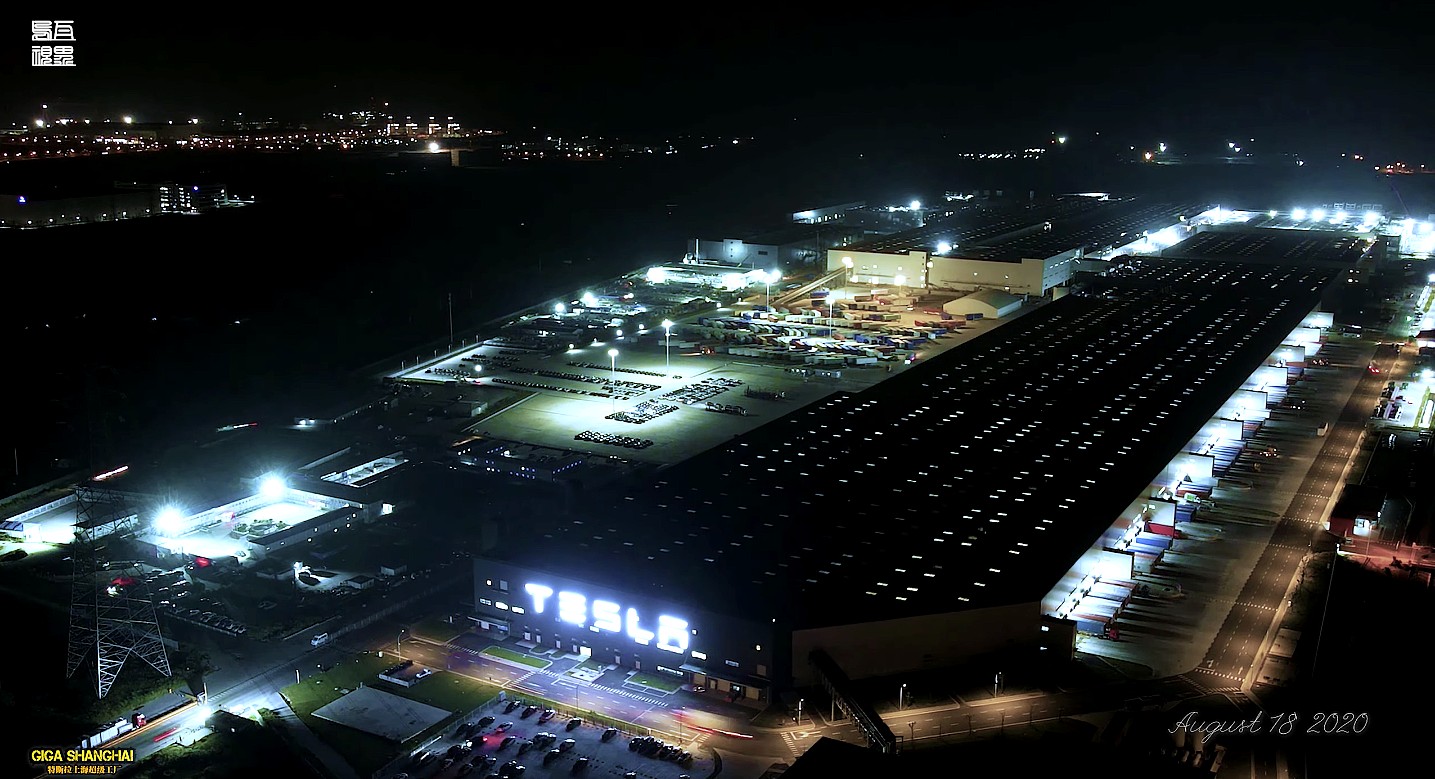Tesla is looking for a Chief Designer to oversee its production of China-specific model releases in the country. The company’s efforts to open a Design Studio in China have been well-known, but the search for someone to help design cars that will be geared toward the Chinese market in specific continues.
Tesla has been manufacturing its electric vehicles in China since late 2019, while the first public deliveries began in January 2020. Since then, the automaker has seen overwhelming growth, which has been driven by incredible demand in China. The Tesla Model 3 is coming off of a highly-successful 2020 where it dominated sales figures for the full year. The Model Y also began production in late 2020 in Shanghai at its manufacturing plant, but the two cars are not all the company has in its plans.
Sources familiar with Tesla’s operation in China told Reuters that the company had started a full-fledged search to find the person who will design China-geared designs moving forward. According to the sources, recruiters and human resources representatives have worked diligently for four months to find a “bi-cultural” candidate with at least 20 years of experience. It will require a subjective sense of automotive design and familiarity with Chinese tastes. Even though Tesla has done relatively well in the Chinese market with its cars, the company plans to attack the market with designs that will speak to local citizens, which should drive sales figures through the roof.
A handful of potential candidates have been interviewed by Franz von Holzhausen, Tesla’s Chief Designer, but it is unknown how many people Tesla has talked to thus far.
In June 2020, Teslarati reported that Tesla was requesting that everyone, regardless of design experience or automotive craftsmanship, design an all-electric car that would appeal to China’s masses. “Even if you are not a car designer, you are welcome to submit. It’s more than just a car designed for you,” Tesla stated. “Please think of China in your Tesla design work.”
This request from the automaker followed a January 2020 Reuters report that revealed Tesla’s plans to design a “Chinese-style” vehicle.
Tesla is coming off its biggest year as a company, successfully delivering 499,650 of its over 509,000 produced cars. Q4 2020 was the company’s biggest quarter yet in terms of production and deliveries, as the company worked diligently to attain the 500,000 vehicle guidance it set for itself well before the COVID-19 pandemic slowed production lines.
Chinese-Style Tesla Vehicles (Source: Tesla China WeChat)
The mission to increase the number of EVs on the road is far from over for Tesla. Now, it seems the automaker will begin adapting body styles to every market, looking to cater to each consumer base individually, instead of planning to release a universally-accepted vehicle that doesn’t require revisions. While Tesla’s cars have been successful in countries other than the U.S., there is still work to be done. With more cars on the road in China than any other country globally, focusing on China could ultimately lead to long-term success for Tesla and may lead to a more prolonged domination of the sector than originally anticipated. CEO Elon Musk has openly stated that other companies will catch up in terms of EV development, but Tesla would be able to remain in their lead due to manufacturing efficiencies.
Once a Chief Designer is hired, Tesla will begin to build a team that will turn renderings into clay models. This will eventually lead to new EV designs being built and a broader range of body styles for consumers to choose from.
It is unclear if the development of new Chinese designs has anything to do with the $25,000 vehicle that Tesla plans to manufacture in China soon. Tesla detailed this vehicle at the company’s Battery Day event in September, where Musk stated that a $25k, fully autonomous car would be available in 3-5 years.
Right now, China is swallowing up demand for small, compact cars, even if they are not electric. The Toyota Corolla and Volkswagen Golf are two of the most popular, and Shanghai-based consultancy group Automotive Foresight says that a compact vehicle could be Tesla’s key to dominating the country and beyond. “A compact Tesla car would do well in China, as well as the rest of Asia and Europe,” Automotive Foresight’s Yale Zhang said. “It could potentially put a serious dent in sales of cars like Toyota’s Corolla and the Volkswagen Golf.”
News
Tesla cleared in Canada EV rebate investigation
Tesla has been cleared in an investigation into the company’s staggering number of EV rebate claims in Canada in January.

Canadian officials have cleared Tesla following an investigation into a large number of claims submitted to the country’s electric vehicle (EV) rebates earlier this year.
Transport Canada has ruled that there was no evidence of fraud after Tesla submitted 8,653 EV rebate claims for the country’s Incentives for Zero-Emission Vehicles (iZEV) program, as detailed in a report on Friday from The Globe and Mail. Despite the huge number of claims, Canadian authorities have found that the figure represented vehicles that had been delivered prior to the submission deadline for the program.
According to Transport Minister Chrystia Freeland, the claims “were determined to legitimately represent cars sold before January 12,” which was the final day for OEMs to submit these claims before the government suspended the program.
Upon initial reporting of the Tesla claims submitted in January, it was estimated that they were valued at around $43 million. In March, Freeland and Transport Canada opened the investigation into Tesla, noting that they would be freezing the rebate payments until the claims were found to be valid.
READ MORE ON ELECTRIC VEHICLES: EVs getting cleaner more quickly than expected in Europe: study
Huw Williams, Canadian Automobile Dealers Association Public Affairs Director, accepted the results of the investigation, while also questioning how Tesla knew to submit the claims that weekend, just before the program ran out.
“I think there’s a larger question as to how Tesla knew to run those through on that weekend,” Williams said. “It doesn’t appear to me that we have an investigation into any communication between Transport Canada and Tesla, between officials who may have shared information inappropriately.”
Tesla sales have been down in Canada for the first half of this year, amidst turmoil between the country and the Trump administration’s tariffs. Although Elon Musk has since stepped back from his role with the administration, a number of companies and officials in Canada were calling for a boycott of Tesla’s vehicles earlier this year, due in part to his association with Trump.
News
Tesla Semis to get 18 new Megachargers at this PepsiCo plant
PepsiCo is set to add more Tesla Semi Megachargers, this time at a facility in North Carolina.

Tesla partner PepsiCo is set to build new Semi charging stations at one of its manufacturing sites, as revealed in new permitting plans shared this week.
On Friday, Tesla charging station scout MarcoRP shared plans on X for 18 Semi Megacharging stalls at PepsiCo’s facility in Charlotte, North Carolina, coming as the latest update plans for the company’s increasingly electrified fleet. The stalls are set to be built side by side, along with three Tesla Megapack grid-scale battery systems.
The plans also note the faster charging speeds for the chargers, which can charge the Class 8 Semi at speeds of up to 1MW. Tesla says that the speed can charge the Semi back to roughly 70 percent in around 30 minutes.
You can see the site plans for the PepsiCo North Carolina Megacharger below.

Credit: PepsiCo (via MarcoRPi1 on X)

Credit: PepsiCo (via MarcoRPi1 on X)
READ MORE ON THE TESLA SEMI: Tesla to build Semi Megacharger station in Southern California
PepsiCo’s Tesla Semi fleet, other Megachargers, and initial tests and deliveries
PepsiCo was the first external customer to take delivery of Tesla’s Semis back in 2023, starting with just an initial order of 15. Since then, the company has continued to expand the fleet, recently taking delivery of an additional 50 units in California. The PepsiCo fleet was up to around 86 units as of last year, according to statements from Semi Senior Manager Dan Priestley.
Additionally, the company has similar Megachargers at its facilities in Modesto, Sacramento, and Fresno, California, and Tesla also submitted plans for approval to build 12 new Megacharging stalls in Los Angeles County.
Over the past couple of years, Tesla has also been delivering the electric Class 8 units to a number of other companies for pilot programs, and Priestley shared some results from PepsiCo’s initial Semi tests last year. Notably, the executive spoke with a handful of PepsiCo workers who said they really liked the Semi and wouldn’t plan on going back to diesel trucks.
The company is also nearing completion of a higher-volume Semi plant at its Gigafactory in Nevada, which is expected to eventually have an annual production capacity of 50,000 Semi units.
Tesla executive teases plan to further electrify supply chain
News
Tesla sales soar in Norway with new Model Y leading the charge
Tesla recorded a 54% year-over-year jump in new vehicle registrations in June.

Tesla is seeing strong momentum in Norway, with sales of the new Model Y helping the company maintain dominance in one of the world’s most electric vehicle-friendly markets.
Model Y upgrades and consumer preferences
According to the Norwegian Road Federation (OFV), Tesla recorded a 54% year-over-year jump in new vehicle registrations in June. The Model Y led the charge, posting a 115% increase compared to the same period last year. Tesla Norway’s growth was even more notable in May, with sales surging a whopping 213%, as noted in a CNBC report.
Christina Bu, secretary general of the Norwegian EV Association (NEVA), stated that Tesla’s strong market performance was partly due to the updated Model Y, which is really just a good car, period.
“I think it just has to do with the fact that they deliver a car which has quite a lot of value for money and is what Norwegians need. What Norwegians need, a large luggage space, all wheel drive, and a tow hitch, high ground clearance as well. In addition, quite good digital solutions which people have gotten used to, and also a charging network,” she said.
Tesla in Europe
Tesla’s success in Norway is supported by long-standing government incentives for EV adoption, including exemptions from VAT, road toll discounts, and access to bus lanes. Public and home charging infrastructure is also widely available, making the EV ownership experience in the country very convenient.
Tesla’s performance in Europe is still a mixed bag, with markets like Germany and France still seeing declines in recent months. In areas such as Norway, Spain, and Portugal, however, Tesla’s new car registrations are rising. Spain’s sales rose 61% and Portugal’s sales rose 7% last month. This suggests that regional demand may be stabilizing or rebounding in pockets of Europe.
-

 Elon Musk2 weeks ago
Elon Musk2 weeks agoTesla investors will be shocked by Jim Cramer’s latest assessment
-

 Elon Musk2 days ago
Elon Musk2 days agoxAI launches Grok 4 with new $300/month SuperGrok Heavy subscription
-

 Elon Musk4 days ago
Elon Musk4 days agoElon Musk confirms Grok 4 launch on July 9 with livestream event
-

 News1 week ago
News1 week agoTesla Model 3 ranks as the safest new car in Europe for 2025, per Euro NCAP tests
-

 Elon Musk2 weeks ago
Elon Musk2 weeks agoA Tesla just delivered itself to a customer autonomously, Elon Musk confirms
-

 Elon Musk1 week ago
Elon Musk1 week agoxAI’s Memphis data center receives air permit despite community criticism
-

 News2 weeks ago
News2 weeks agoXiaomi CEO congratulates Tesla on first FSD delivery: “We have to continue learning!”
-

 Investor's Corner2 weeks ago
Investor's Corner2 weeks agoTesla gets $475 price target from Benchmark amid initial Robotaxi rollout















